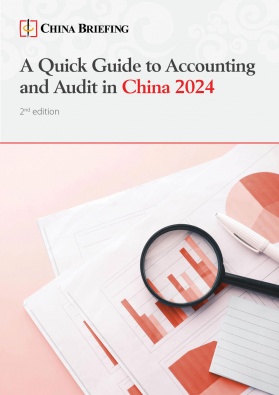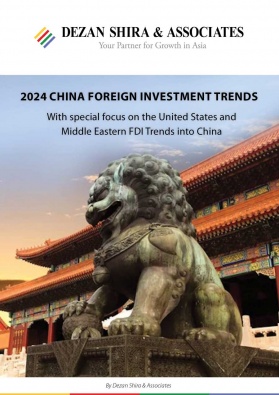China’s Revised Measures for the Administration and Registration of Formula Foods for Special Medical Purposes
China has unveiled a set of revised measures governing the administration and registration of formula foods for special medical purposes, effective January 1, 2024. These changes mark significant updates to the registration mechanism, responsibility system, and penalties in place.
On December 1, 2023, China’s State Administration for Market Regulation (SAMR) introduced a significant regulatory update known as the Measures for the Administration of the Registration of Formula Foods for Special Medical Purposes (hereinafter referred to as the ‘revised measures’). The initiative replaces the 2016 Administrative Measures for Registration of Food for Special Medical Purposes.
The revised measures, comprising seven chapters and 64 articles, are scheduled to come into effect on January 1, 2024.
Notable updates include priority review and approval procedures, scenarios not approved for registration, labels, penalties, and initiatives to optimize the registration procedure.
How China is regulating formula food for special medical purposes
In China, formula food for special medical purposes (FFSMP) is governed by the country’s Food Safety Law. Since 2019 all FFSMPs manufactured within China or imported into the country are required to undergo registration with the SAMR before they can be sold in the Chinese market.
This registration process involves the submission of comprehensive information, including the product formula, production techniques, labels, instructions, and supporting materials that demonstrate the safety, nutritional sufficiency, and clinical effectiveness of the special medical purpose food.
The regulatory framework is designed to ensure that FFSMPs meet the specific nutritional needs of individuals with limited or impaired capacity to intake, digest, absorb, or metabolize conventional foods.
The following sections introduce key changes introduced in the revised measures.
Changes to the registration process introduced in the revised measures
What is the required documentation?
In order to complete the registration process for Formula Foods for Special Medical Purposes (FFFSMP), the applicant is required to submit a comprehensive set of materials to the SAMR. The revised measures have expanded the documentation catalog from eight to ten sections, reflecting a more detailed and nuanced approach. These are:
- Registration application: The initial step involves submitting a formal application for the registration of FFSMP.
- Entity qualification documents of the applicant (newly added): This newly added section emphasizes the importance of providing documentation that verifies the qualifications and legitimacy of the applicant.
- Product R&D report: A detailed report outlining the research and development processes undertaken for the specific FFSMP.
- Product formula and design basis (newly added): The formulation details and the underlying design principles for the product are now segregated into distinct sections.
- Production process materials: Documentation related to the production processes involved in manufacturing the FFSMP.
- Product standards and technical requirements: This section has been refined from the previous “Product Standards Requirements” to encompass both product standards and additional technical requirements.
- Drafts of product labels and instructions: Applicants are required to provide preliminary drafts of product labels and instructions, ensuring compliance with regulatory standards.
- Product test reports: Reports detailing the comprehensive testing conducted on the FFSMP, verifying its safety and efficacy.
- Materials on R&D, production, and testing capabilities: Documentation showcasing the applicant’s capabilities in research and development, production, and testing, aligning with the specific requirements of the FFSMP.
- Other materials demonstrating safety, nutritional adequacy, and clinical effectiveness: Additional materials providing evidence of the FFSMP’s safety, nutritional adequacy, and clinical effectiveness for special medical purposes.
What are the applicant’s responsibilities under the revised regulations?
The applicant for FFSMP registration is mandated to ensure the authenticity, integrity, legality, and traceability of the materials submitted. Moreover, the applicant holds legal responsibilities for the accuracy and compliance of the documentation provided.
According to Article 6 of the revised measures, applicants are required to collaborate closely with the market supervision and management department. This collaboration includes actively participating in on-site inspections, sampling inspections, and other registration-related activities. The applicant is expected to provide the necessary conditions to facilitate these processes.
What are the conditions and application process for prioritized review?
The revised measures introduce some key principles, outlined in Article 4, that emphasize being “scientific, transparent, fair and just, and encourage innovation.”
These principles lay the foundation for a dedicated prioritized review and approval process strategically crafted to stimulate enterprises in developing specialized products for rare diseases and urgent clinical needs within the realm of formula food for special medical purposes.
To support this commitment, Articles 34, 35, and 36 establish what is called a “priority review and approval” process tailored to support the applications of food for special medical purposes (FFSMP), as illustrated in the table below:
| Prioritized Review and Approval Process of Formula Food for Special Medical Purposes | ||
| Steps | Article number | Details |
| Conditions for prioritized review | Article 34 | Applies to the following cases:
|
| Application process | Article 35 | Individual steps include:
|
| Review period and additional submissions | Article 36 | The review period for FFSMP in the priority process is shortened to 30 working days. The applicant, upon confirmation, may submit additional technical materials.
If on-site inspections or sample testing are required, these are prioritized and promptly arranged. |
As specified in Article 37, if the application does not meet the necessary conditions, the review agency will terminate the expedited registration process. Following this, the product undergoes a standard review procedure, and the applicant is duly informed of the decision.
In which cases the registration will not be granted?
The revised measures identify seven instances where registration will be denied, as outlined in Article 21. If any of the following situations arise, the review agency must issue a preliminary decision of non-approval:
- False or inaccurate information in the application documents.
- Insufficient information in the application documents regarding the safety, nutritional adequacy, and clinical effectiveness of the product.
- The applicant lacks the necessary research and development, production, or testing capabilities for the registered product.
- Failure to submit correction documents within the specified timeframe or submitted documents that do not meet the requirements.
- Inability to confirm the on-site inspection date within the given timeframe, refusal, or failure to cooperate with on-site inspection and sampling.
- On-site inspection or sampling inspection reports concluding non-compliance with registration requirements.
- Any other situations not in accordance with the registration requirements specified in relevant laws, regulations, rules, national food safety standards, and technical requirements.
Labeling requirements
The revised regulations introduce substantial changes to the labeling requirements for food for FFSMP, aimed at “enhancing clarity, conformity, and consumer protection.”
In particular, these updates These modifications address critical aspects, such as:
- Placement of advisory statements: The placement of the advisory statement (“please use under the guidance of a doctor or clinical nutritionist”) has undergone a notable adjustment, as it is now required to be positioned on the “main displayed surface” of the label.
- Prohibitive requirements for functions claims: Labels and instructions must refrain from containing false information, making disease prevention or treatment claims, or misleading consumers. The responsibility for the content on labels and instructions rests squarely with the applicant, who must ensure truthfulness, accuracy, clarity, and easy identification.
Strengthened measures against violations and unethical practices
In an effort to reinforce regulatory integrity and curb fraudulent practices, the revised measures underscore severe consequences for applicants engaging in deceptive or improper means to secure registration certificates, including (but not limited to):
- Revocation of certificate: If an applicant is found to have obtained the FFSMP registration certificate through deception, bribery, or other illicit methods, the SAMR is empowered to revoke the certificate in accordance with the law.
- Restriction on reapplication: The permit holder, in such cases, faces a three-year prohibition from applying for FFSMP registration again, emphasizing the gravity of the offense.
- Monetary penalties: Stringent fines are imposed as penalties for violations. A fine ranging from not less than RMB 10,000 (US$1,399.56) to RMB 30,000 (US$4,198.68) is levied, with the amount varying based on the severity of the violation. In instances where harm is inflicted, the fine increases significantly to a range of not less than RMB 30,000 (US$4,198.68) to RMB 200,000 (US$27,991.22).
- Transfer to public security organs: If the violation is suspected to involve criminal activities, the case is mandated to be transferred to the public security organs according to the law.
How to read the revised measures
As China takes charge of strictly overseeing FFSMP, it is important to see this regulatory update as part of a broader effort to strengthen the nation’s food safety network.
The journey towards a modern Chinese food safety regulatory framework began in 2001 with the country joining the World Trade Organization. Over the years, significant progress has been made in addressing fragmentation within the national food control system, aligning it more closely with international standards, particularly the Codex system.
The exploration of improvements in infant and baby formula registration, health foods, and FFSMP by Chinese regulators specifically reflects this journey towards regulatory refinement.
Now, as the country’s SAMR prepares to implement the revised measures, stakeholders must understand the key changes and implications of these regulations. Companies and producers should stay vigilant for updates to supporting documents, as the comprehensive nature of the new measures requires proactive preparation and a meticulous approach to compliance.
For any inquiries or assistance regarding FFSMP registration requirements, stakeholders are encouraged to seek expert guidance.
About Us
China Briefing is written and produced by Dezan Shira & Associates. The practice assists foreign investors into China and has done so since 1992 through offices in Beijing, Tianjin, Dalian, Qingdao, Shanghai, Hangzhou, Ningbo, Suzhou, Guangzhou, Dongguan, Zhongshan, Shenzhen, and Hong Kong. Please contact the firm for assistance in China at china@dezshira.com.
Dezan Shira & Associates has offices in Vietnam, Indonesia, Singapore, United States, Germany, Italy, India, and Russia, in addition to our trade research facilities along the Belt & Road Initiative. We also have partner firms assisting foreign investors in The Philippines, Malaysia, Thailand, Bangladesh.
- Previous Article Greater Bay Area Preferential IIT Subsidy for Foreign Talent in 2023/24
- Next Article China’s Three-Years Action Plan to Boost the Business Environment in the Greater Bay Area









